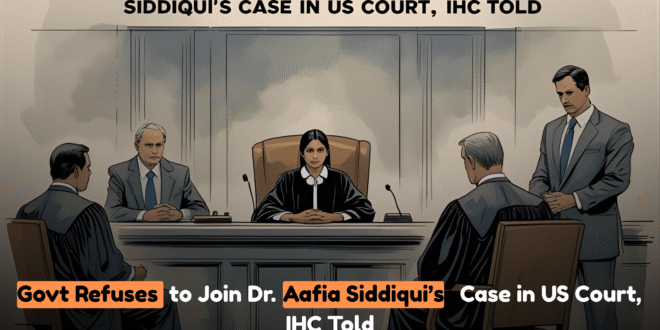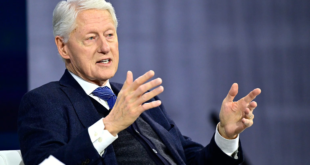The Islamabad High Court (IHC) was informed on Monday that the federal government has decided not to become a party to Dr. Aafia Siddiqui’s case in a United States court. Appearing before the court, the Additional Attorney General confirmed this stance. The bench—headed by Justice Sardar Ejaz Ishaq Khan—insisted that any such decision needs a formal rationale, which was not provided. The court has adjourned the case until July 4 and directed the government to explain its reasoning.
Government’s Decision Not to Intervene
Neither the government’s legal representative nor the Attorney General provided any explanation or legal justification for this refusal. This lack of clarity triggered concern from the court, which emphasized that state decisions must be transparent and reasoned.
IHC Seeks Clear Rationale
Justice Khan strongly highlighted that constitutional courts require accountability when the state makes significant decisions. The court formally issued a directive requiring the Additional Attorney General to provide detailed explanations for the government’s stance at the next hearing scheduled for July 4.
Background on Dr. Aafia Siddiqui’s Case
Dr. Aafia Siddiqui, a Pakistani–American neuroscientist, has been serving an 86-year sentence at the Federal Medical Center, Carswell in Texas. She was convicted on charges of attempting to murder US personnel and assault with a deadly weapon during her arrest in Afghanistan Govt Refuses over fourteen years ago. Her sister, Dr. Fawzia Siddiqui, has petitioned the IHC for legal support and repatriation, but the government’s decision to withdraw from any US legal involvement has left the petition without cooperation.
What Comes Next?
The case has now been adjourned until July 4, when the government must submit its written justification. The court will assess whether the refusal to engage aligns with Pakistan’s constitutional obligations and international commitments especially given Dr. Aafia’s ongoing incarceration in a US prison. Govt Refuses This hearing could have far-reaching implications, possibly affecting future petitions related to repatriation, legal assistance, and diplomatic negotiations.
Conclusion
Pakistan’s refusal to support Dr. Aafia Siddiqui’s legal efforts in the US has stirred considerable debate. While the Islamabad High Court demands transparency, the lack of publicly stated reasons raises questions about government priorities in high-profile international legal matters. As the July 4 hearing approaches, all eyes are on the government’s rationale and whether Pakistan will take a more active role in the pursuit of justice and repatriation for Dr. Siddiqui.




